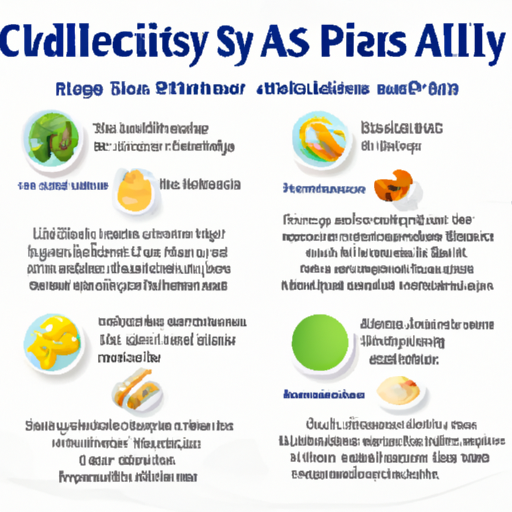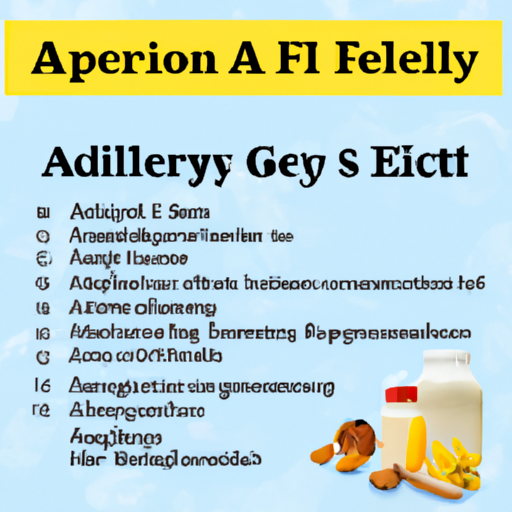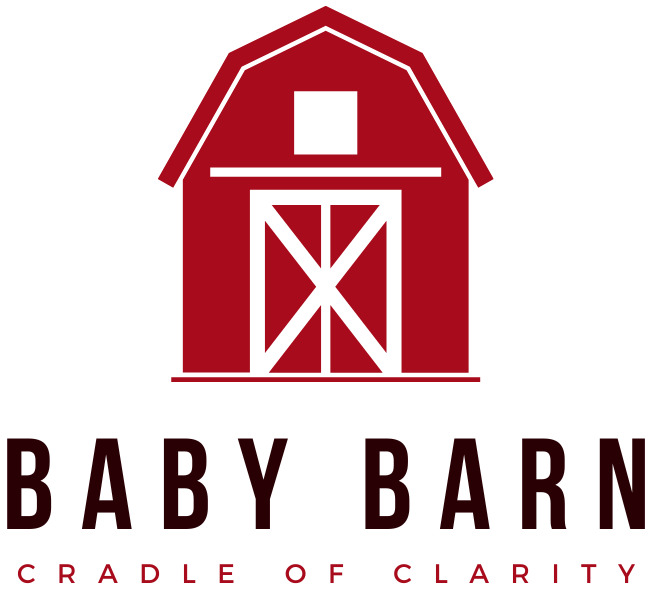In this article, we will be discussing baby food allergies and how you can prevent and manage them. You will learn about the common signs and symptoms of food allergies in babies, as well as the foods that are most likely to cause allergies. We will also explore different strategies and tips to help you introduce new foods to your baby’s diet safely. By the end of this article, you will have a better understanding of how to navigate the world of baby food allergies and ensure the well-being of your little one.

Understanding Baby Food Allergies
What are baby food allergies?
Baby food allergies occur when a baby’s immune system reacts negatively to certain foods. These reactions can range from mild discomfort to life-threatening anaphylaxis. The most common food allergens for babies are cow’s milk, eggs, fish, shellfish, tree nuts, peanuts, soy, and wheat. It is important to note that food allergies are different from food intolerances, which do not involve the immune system.
Common symptoms of baby food allergies
If your baby has a food allergy, they may experience a range of symptoms. Some common symptoms include:
- Skin rash or hives
- Swelling of the face, lips, or tongue
- Vomiting or stomach cramps
- Diarrhea
- Difficulty breathing or wheezing
- Runny nose or sneezing
If you notice any of these symptoms after feeding your baby a particular food, it is important to consult a healthcare professional to determine if your baby has a food allergy.
Potential causes of baby food allergies
The exact cause of baby food allergies is still not fully understood. However, there are a few factors that may contribute to the development of food allergies in infants. These include:
- Family history of allergies: If you or your partner have allergies, your baby may be more likely to develop them as well.
- Early introduction of certain foods: Introducing certain allergenic foods, such as peanuts, too early or too late in a baby’s diet may increase the risk of developing allergies.
- Lack of exposure to allergenic foods: Some studies suggest that delaying the introduction of allergenic foods may actually increase the risk of developing allergies.
While these factors may play a role, it is important to remember that every baby is different, and it is still not clear why some infants develop food allergies while others do not.
Preventing Baby Food Allergies
Exclusive breastfeeding and its role in prevention
Exclusive breastfeeding for the first six months of life has been shown to have numerous health benefits, including a reduced risk of developing food allergies. Breast milk contains antibodies that help protect babies from allergies and other illnesses. It is recommended to continue breastfeeding while gradually introducing solids.
Introducing solids gradually and strategically
When it comes to introducing solid foods to your baby, it is important to do so gradually and strategically. Start with single-ingredient foods and wait a few days before introducing new ones. This will help you identify any potential food allergies or sensitivities. Common first foods include pureed fruits and vegetables, such as apples, bananas, and sweet potatoes.
Avoiding high-risk allergenic foods during infancy
While it is important to introduce a variety of foods to your baby, there are certain high-risk allergenic foods that should be avoided during infancy. These include cow’s milk, eggs, fish, shellfish, peanuts, tree nuts, soy, and wheat. It is recommended to wait until your baby is at least one year old before introducing these foods, and to consult a healthcare professional before doing so.
Managing Baby Food Allergies
Diagnosis of baby food allergies
If you suspect that your baby has a food allergy, it is important to seek a proper diagnosis from a healthcare professional. They will typically perform a physical examination, review your baby’s medical history, and may recommend allergy testing, such as a skin prick test or blood test, to determine the specific food allergens that are causing the reaction.
Elimination diet and its effectiveness
Once a food allergy has been diagnosed, the most effective way to manage it is through an elimination diet. This involves removing the allergenic food from your baby’s diet completely. It is important to work with a healthcare professional or a registered dietitian to ensure that your baby’s nutritional needs are met during this time. Over time, your baby’s immune system may become less sensitive to the allergenic food, and they may be able to tolerate it in the future.
Role of healthcare professionals in managing allergies
Managing baby food allergies can be challenging, but healthcare professionals play a critical role in providing guidance and support. They can help you navigate the process of diagnosis, educate you on allergen avoidance, and provide resources for managing allergies. It is important to communicate openly with your healthcare professional and follow their recommended treatment plan.

Alternative Options for Allergic Babies
Hypoallergenic formulas and their benefits
For babies who cannot tolerate cow’s milk or have multiple food allergies, hypoallergenic formulas are available as an alternative. These formulas are made from extensively hydrolyzed proteins, which are easier for babies to digest. They can provide adequate nutrition for babies with food allergies and ensure they are receiving the necessary nutrients to support their growth and development.
Introduction to hypoallergenic solid foods
Once your baby is ready to start eating solid foods, hypoallergenic options are available for those with food allergies. These options typically use alternative ingredients that are less likely to cause an allergic reaction. Examples include hypoallergenic baby cereals made from rice or oats, and pureed fruits and vegetables without common allergens.
Seeking guidance from a pediatric allergist
If your baby has been diagnosed with a food allergy, it can be helpful to seek guidance from a pediatric allergist. These specialists have expertise in managing allergies and can provide tailored advice for your baby’s specific needs. They can help you navigate the process of introducing new foods, provide strategies for preventing cross-contamination, and offer guidance on managing allergies in various settings.
Important Considerations
Importance of careful food label reading
When managing baby food allergies, it is crucial to carefully read food labels. Manufacturers are required to list common allergens on their labels, making it easier for parents to identify potential allergens in packaged foods. However, it is important to note that cross-contamination may still occur, even if a product does not contain the allergen directly.
Potential cross-contamination risks
Cross-contamination occurs when an allergenic food comes into contact with a product that does not contain the allergen but is processed or packaged in the same facility. This can pose a risk for babies with food allergies. It is important to be aware of potential cross-contamination risks and choose products with appropriate labeling, such as those labeled “free from allergen” or “manufactured in a dedicated facility.”
Managing allergies while dining out or traveling
Managing baby food allergies can become trickier while dining out or traveling. It is important to communicate your baby’s allergies to restaurant staff and ask about ingredient information and potential cross-contamination risks. When traveling, it is helpful to bring safe snacks and meals for your baby to ensure they have suitable options available.
Introducing Allergenic Foods Safely
Early introduction of allergenic foods
Recent research suggests that early introduction of allergenic foods may actually help prevent the development of food allergies. It is now recommended to introduce common allergenic foods, such as peanuts and eggs, to babies with no known allergies between four to six months of age. However, it is important to consult a healthcare professional before doing so.
Gradual exposure versus avoidance approach
The traditional approach to managing food allergies involved strict avoidance of allergenic foods. However, recent studies have shown that gradual exposure to allergenic foods may actually help prevent the development of allergies. This can be done under the guidance of a healthcare professional who can help you introduce allergenic foods safely and monitor your baby for any adverse reactions.
Supporting research on allergy prevention
Research on allergy prevention is ongoing, and new studies are constantly being conducted to better understand the development and management of food allergies. It is important to stay informed and support ongoing research in this field. By participating in clinical trials or donating to allergy research organizations, you can help contribute to the development of new preventive strategies and treatments.
Allergies versus Sensitivities
Differentiating allergies from food sensitivities
It is important to differentiate between food allergies and food sensitivities. Food allergies involve an immune system reaction, while food sensitivities typically do not. Food sensitivities may cause symptoms such as bloating, abdominal pain, or diarrhea, but they are generally less severe than allergic reactions. If you suspect that your baby has a food sensitivity, it is still important to consult a healthcare professional for proper evaluation and guidance.
Understanding the immune response in allergies
In food allergies, the immune system mistakenly identifies a harmless food protein as a threat. This triggers an immune response, leading to the release of histamine and other chemicals that cause the symptoms of an allergic reaction. The severity of the reaction can vary from mild to life-threatening, and repeated exposure to the allergen can result in more severe reactions over time.
Managing sensitivities through dietary modifications
If your baby has a food sensitivity, dietary modifications may help manage their symptoms. This can involve avoiding certain foods or ingredients that trigger the sensitivity. A healthcare professional or dietitian can provide guidance on suitable alternatives and ensure that your baby is still receiving a balanced and nutritious diet.
Support and Education for Parents
Online resources for allergic parent support
Being a parent of a baby with food allergies can feel overwhelming at times. Thankfully, there are many online resources available that provide support, education, and a sense of community. Websites, blogs, and social media groups dedicated to food allergies can provide valuable information, tips, and emotional support from other parents facing similar challenges.
Finding local support groups
In addition to online resources, local support groups can be a great source of support and information. These groups often organize events, seminars, and workshops where you can connect with other parents, healthcare professionals, and experts in the field of food allergies. Your healthcare professional or pediatric allergist may be able to recommend local support groups in your area.
Importance of open communication with friends and family
Open communication with friends and family is crucial when managing baby food allergies. Educate your loved ones about your baby’s allergies, including the signs and symptoms of an allergic reaction. Ensure that everyone involved in your baby’s care, including grandparents, babysitters, and daycare providers, is aware of the allergens to avoid and the necessary precautions to take.
Emerging Research and Treatments
Promising advancements in food allergy treatments
Advancements in food allergy treatments are offering hope for allergic babies and their families. Immunotherapy, such as oral immunotherapy or sublingual immunotherapy, involves gradually exposing the patient to small amounts of the allergen, with the goal of desensitizing the immune system and reducing or eliminating allergic reactions. While still considered experimental, these treatments show promise and may become more widely available in the future.
Investigating the role of gut microbiome in allergies
Recent research has also been focusing on the role of the gut microbiome in allergies. The gut microbiome, which consists of trillions of bacteria living in the digestive tract, plays an important role in immune function. Imbalances in the gut microbiome have been linked to the development of allergies. Ongoing research aims to better understand this relationship and explore potential interventions, such as probiotics or prebiotics, to help prevent or manage allergies.
Identifying potential preventative strategies
As our understanding of food allergies continues to evolve, researchers are working toward identifying potential preventative strategies. This includes exploring the impact of prenatal and early-life exposures, such as maternal diet during pregnancy or breastfeeding, on the development of allergies in infants. By identifying these factors, we may be able to develop targeted interventions to reduce the risk of food allergies in future generations.
Conclusion
Baby food allergies can be a daunting challenge for parents, but with proper education, support, and guidance from healthcare professionals, it is possible to effectively manage and prevent allergies. By understanding the symptoms, causes, and prevention strategies, you can promote your baby’s health and well-being. Remember to consult a healthcare professional for diagnosis and personalized advice, and stay informed about the latest research and advancements in food allergy management. With the right tools and resources, you can navigate the world of baby food allergies with confidence and provide your baby with the best care possible.





